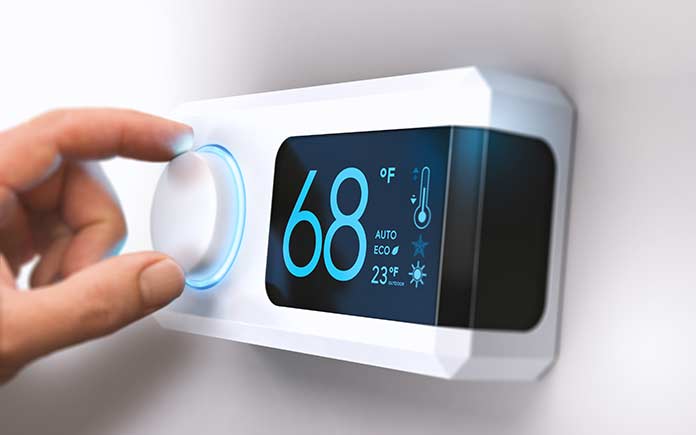If you want a good night’s sleep, some simple modifications around your home can help you rest easier.
Many of these changes don’t require a lot of extra effort and can make a big difference in your sleep patterns.
Here are some things that you can do to sleep tight at night.
1. Set the Thermostat for Sleeping
Cooler is usually better than warmer when it comes to bedroom temperatures. A cooler room allows your body’s temperature to lower to a level that’s required for sleep.
According to WebMD, a temperature ranging between 65 and 72 degrees Fahrenheit is ideal for most people, but the right temperature for you may vary. To make your room as cool and comfortable as possible on hot summer nights, consider installing a ducted reverse-cycle air-conditioning system.
If you have a good air conditioner, but still aren’t getting quality sleep, your best bet is to purchase a smart thermostat.
This device, controlled by a computer or mobile device, allows you to set your air conditioner to different temperatures based on your needs, day or night!
All you need is the app!
2. Keep the Bedroom Dark
A darker bedroom makes relaxing easier. Too much light in a room can trick your brain into thinking it’s still daytime, and this causes disrupted sleep patterns.
A window shade that provides ample darkness in your bedroom is an excellent addition, as are blackout curtains.
If the bedroom’s still not dark enough, wear a sleep mask.

3. Clean Your Home Often
Dirt, dust and dander buildup left to accumulate could interfere with your breathing patterns when you inhale these particles, which makes a sound night of sleep almost impossible.
Regularly vacuuming your bedroom carpet or wood floor can eliminate many of these particles.
You also need to change your air conditioner’s filter — at least once every 90 days — so trapped particles aren’t recirculated into the air.
Changing your sheets at least once per week is also advised.
4. Block Out Noise
Noise from traffic, neighbors and other outside influences could keep you from sleeping well through the night.
Wearing earplugs can help block out excess noise, but they’re intrusive. Turning on a fan or white noise machine can also be used to muffle jarring sounds, but that just bandages the problem, it doesn’t solve it.
If you live in an area that’s especially noisy day and night, install soundproofing insulation.












